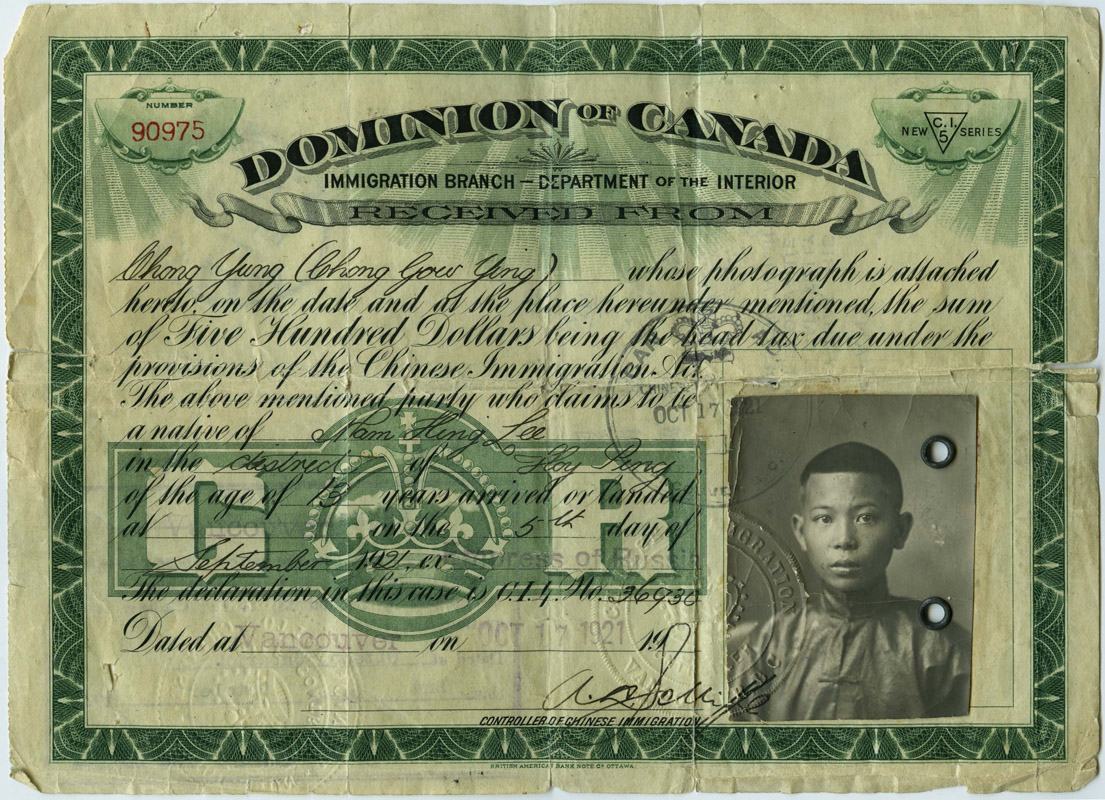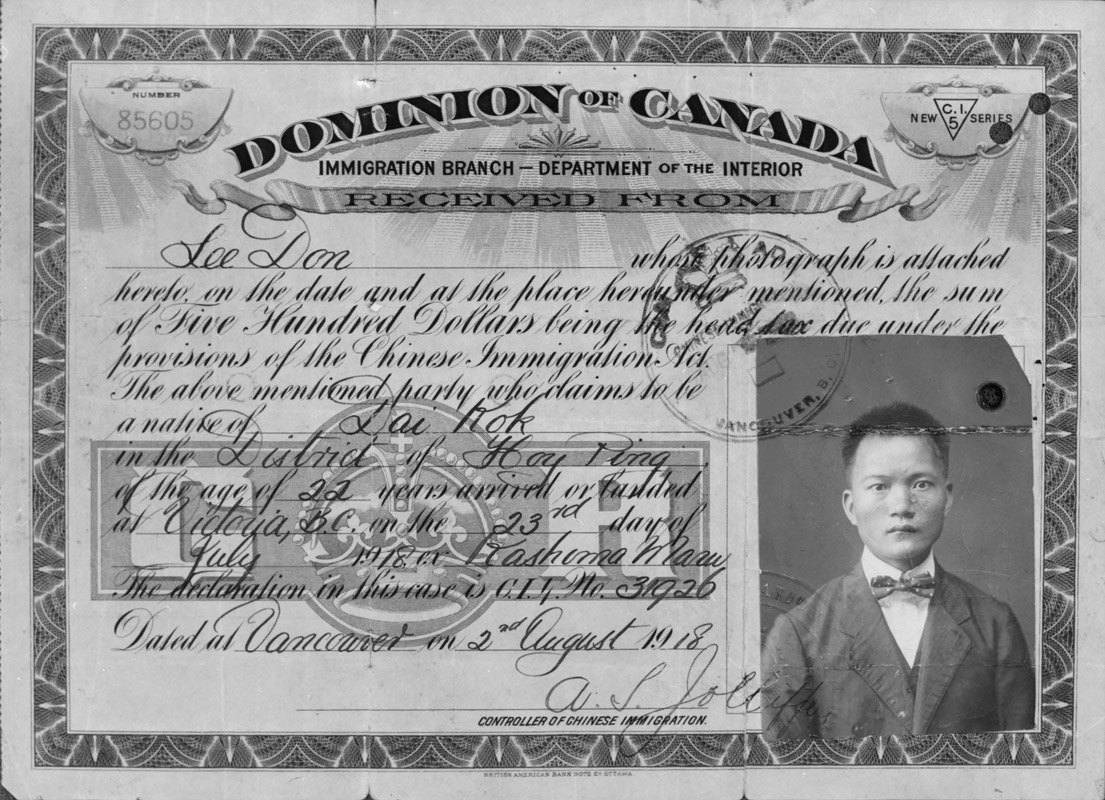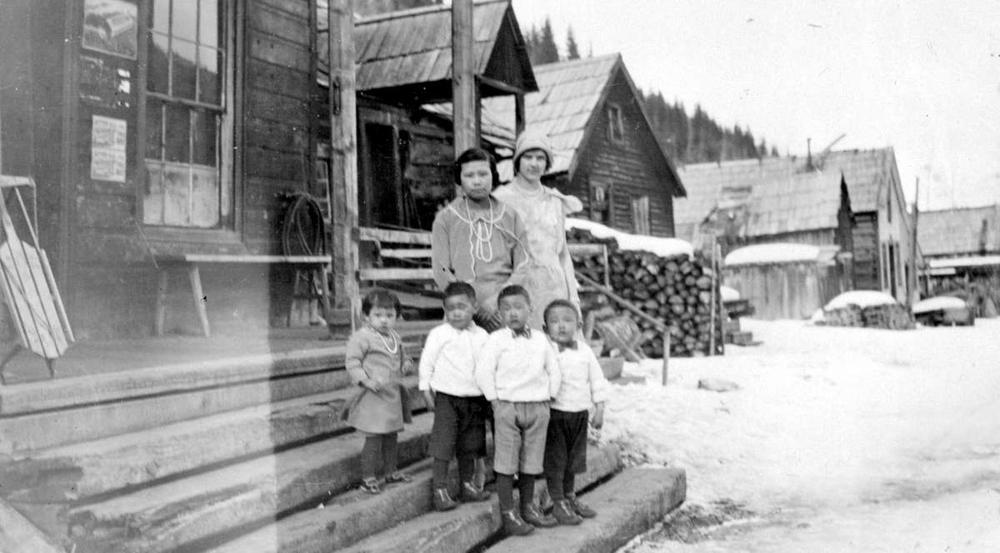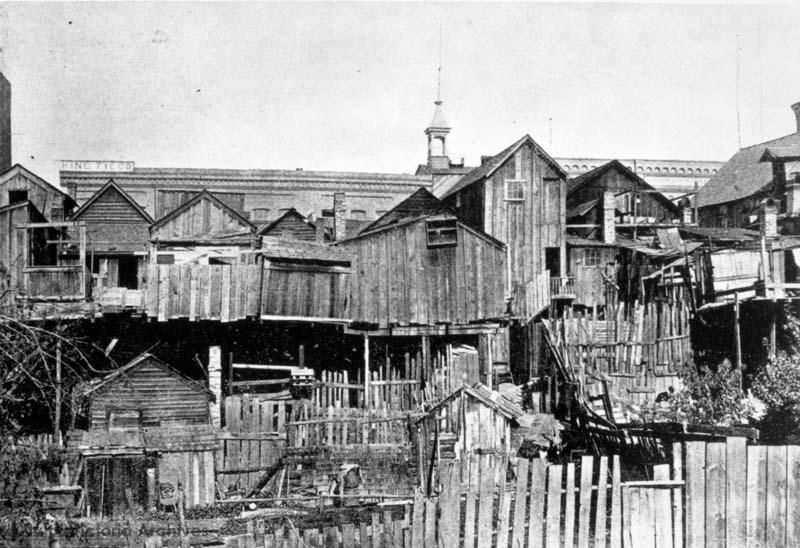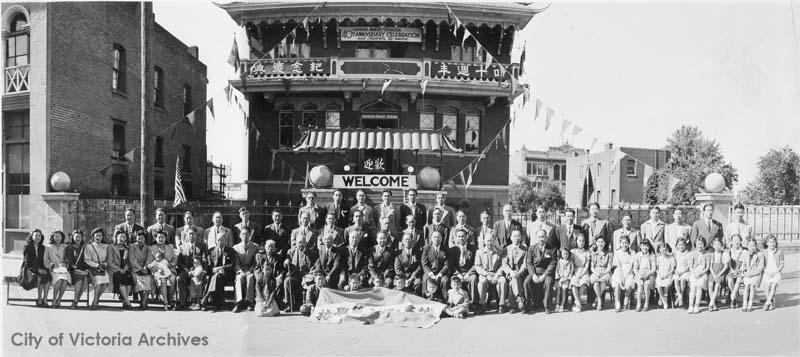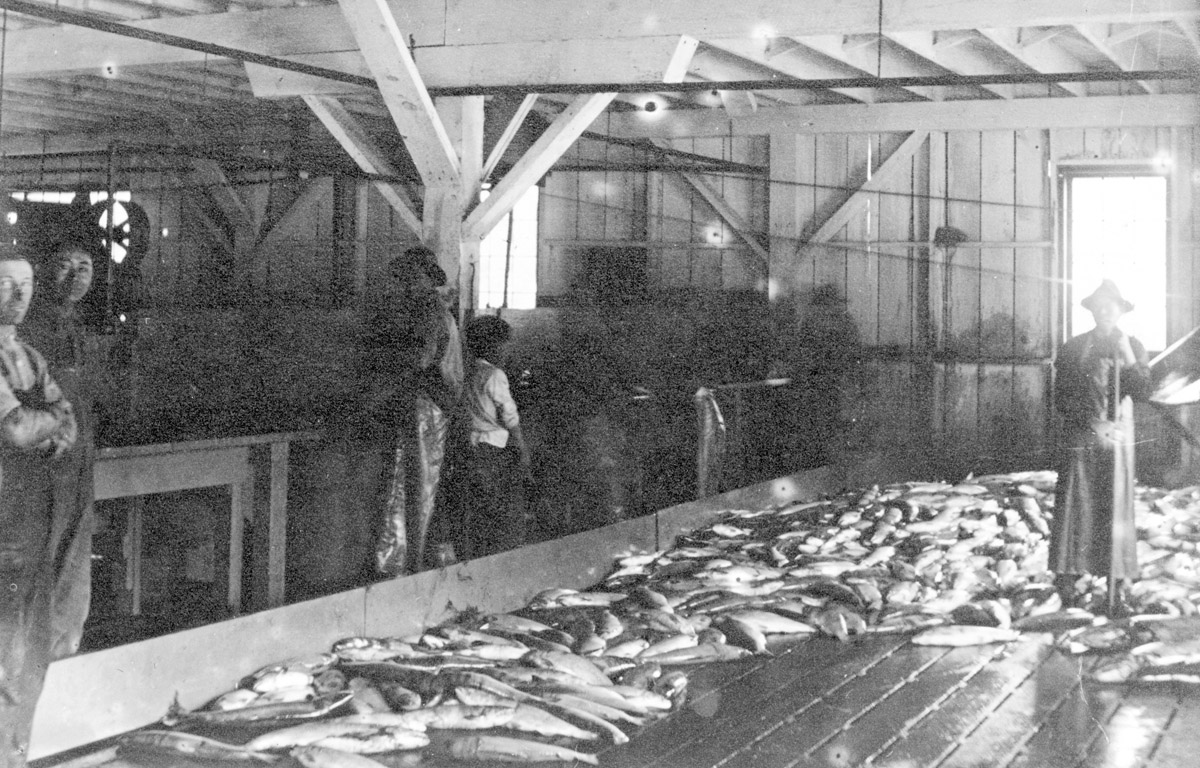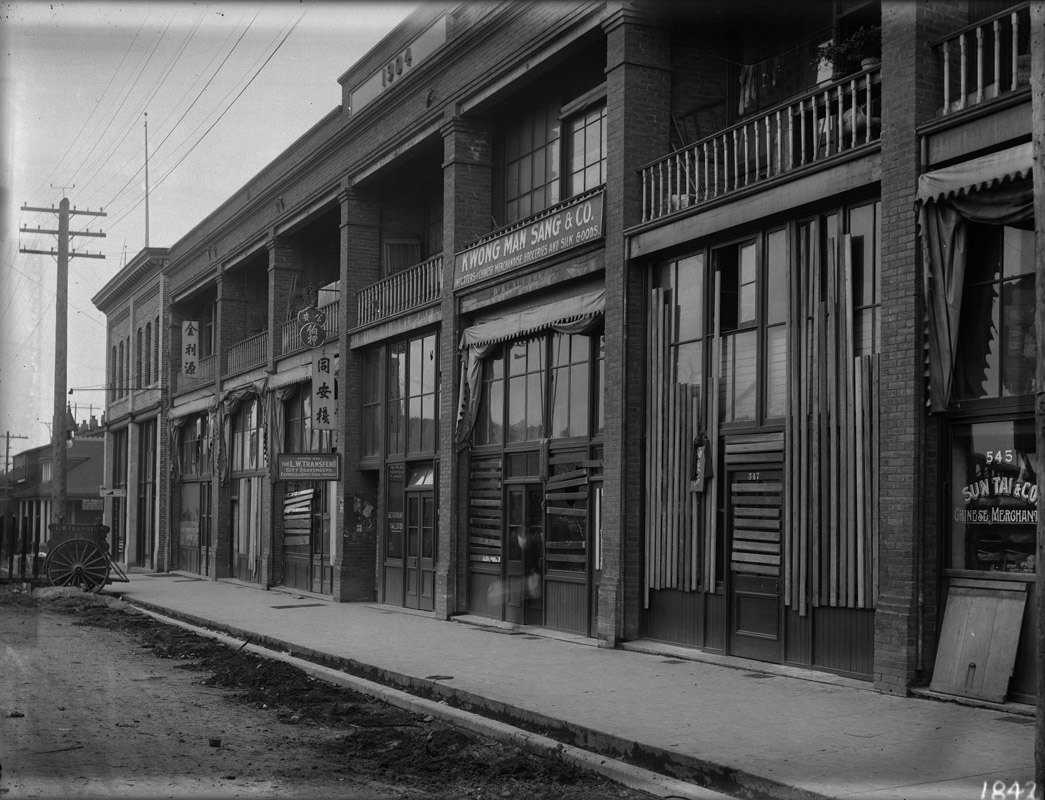Racism and discrimination existed not only on a provincial level but also nationally. Many initiatives were designed to discourage Asian immigration in particular, often at the behest of those living in B.C., where such immigration was prevalent. Veteran's associations and trade unions voiced fears that Chinese workers were willing to work for less money than other groups of workers, limiting employment opportunities for European Canadians. Political leaders in B.C. and throughout the rest of Canada responded by denouncing Asian immigration and creating the political demand for more restrictive race-based immigration policies.
In 1923, the Government of Canada revoked the head tax, a large fee charged to Chinese people entering Canada, replacing it with the Chinese Immigration Act, 1923, which virtually halted all immigration from China. Over the next 24 years, only 44 Chinese migrants entered the country. By 1931, less than four percent of B.C.'s population was Chinese.
